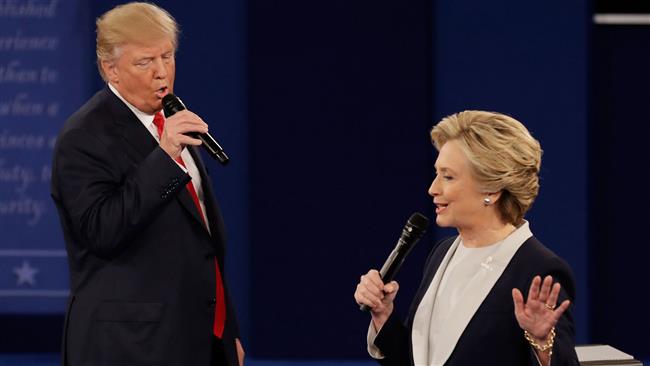The rich and the powerful basically control the US system
The bruising race between Republican presidential nominee Donald Trump and his Democratic rival Hillary Clinton is coming to an end and as the Election Day nears, one question keeps popping up: If we were to break down the American election system, how much of it would be in line with the true essence of democracy?
Trump and Clinton have spared no efforts to win more votes. Racism, sexism, wild accusations and legal scandals have all been part of the political roller coaster that has been this election cycle so far. On one side, there was Donald Trump, who claimed to be the “outsider” who was going to take America out of the hands of its “stupid” leaders.
A real estate mogul who knocked out all of his primary opponents and won the Republican Party’s nomination by making racist remarks that even attracted the Ku Klux Klan. “The fact that Trump paints himself as anti-establishment – and in some respects that is true—but let’s remember that he is not running as some impoverished blue-collar worker who earns minimum wage and barely gets by,” says Mark Glenn, an Idaho-based author and political analyst.
“He is a multi-billionaire and he only became a multi-billionaire as a result of his knowing how the system works and his cooperating with that system,” Glenn says. “The very same people who he is denouncing now as insiders.” On the other hand, there was Hillary Clinton, a former first lady and a veteran politician who knew the game very well and acted providentially from the get-go.
The race between the two was so lively that American allies across the globe started to shake in their boots, thinking about the uncertain prospects of their deep relations with Washington. Glenn believes that Trump is preferred by the wealthy, because Clinton’s rhetoric against traditional US adversaries such as Russia only risks more wars and that would endanger their wealth.
However, when it comes to the US presidential elections the process that leads to a candidate’s election has gotten less attention. According to the US government’s website, the popular vote “does not determine the winner” on Tuesday. Rather, it is the candidate with the “majority of electoral votes” who will win the top job.
The Electoral College was established after “the nation’s founders saw it as a compromise between electing the President by a popular vote among citizens and electing the President in Congress,” the government’s website notes. This means that, at the end of the day, the winner of the election is chosen by 538 electors who are doled out across different states based on each state’s representation in Congress. To win, a candidate needs to get at least 270 votes.
Almost all of the states, except for Maine and Nebraska, use the “winner-take-all” basis, which means the candidate with the most votes gets the most number of electors. There is one major flaw to this plan though: sometimes the candidate with the most popular vote would still lose the race to the candidate with the most electoral vote.
For example, former US president George W. Bush was able to defeat his Democratic rival Al Gore to the White House in 2000, using that very flaw. He was over 500,000 votes behind but had secured 271 electoral votes, compared to Gore’s 266.
Glenn says the US political system is “the most sophisticated form of repression that has existed in history.” “There is no democracy in America, it is an oligarchy in the sense that the rich and the powerful basically control the system and perpetuate the means by which they maintain that power,” he says.
Culled from Presstv




